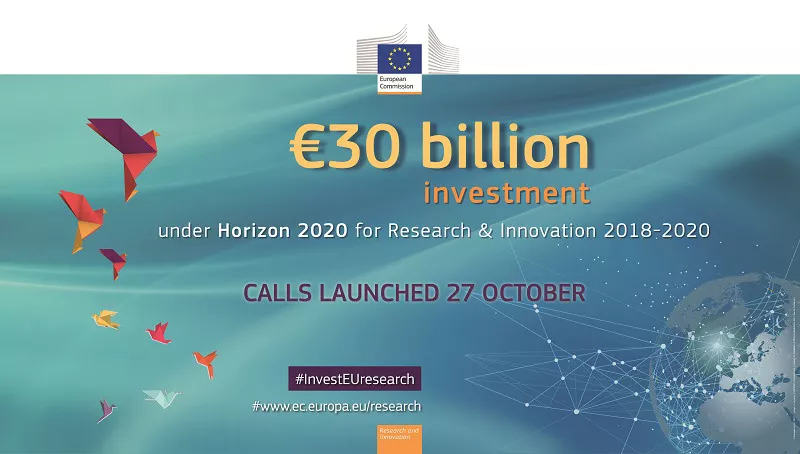
The European Commission announced on 27 October how it will spend €30 billion of the EU research and innovation funding programme Horizon 2020 during 2018-2020, including €2.7 billion to kick-start a European Innovation Council.
Horizon 2020, the EU's €77 billion research and innovation funding programme, supports scientific excellence in Europe and has contributed to high-profile scientific breakthroughs such as the discovery of exoplanets and gravitational waves.
Over the next 3 years, the Commission will seek greater impact of its research funding by focusing on fewer, but critical topics such as migration, security, climate, clean energy and digital economy. Horizon 2020 will also be more geared towards boosting breakthrough, market-creating innovation.
Supporting breakthrough, market-creating innovation
Since the beginning of its mandate, the Juncker Commission has been working hard to give Europe's many innovative entrepreneurs every opportunity to thrive. Now, the Commission is launching the first phase of the European Innovation Council.Between 2018 and 2020, the Commission will mobilise €2.7 billion from Horizon 2020 to support high-risk, high-gain innovation to create the markets of the future. Moreover, Horizon 2020 will make better use of its "crack the challenge" prizes to deliver breakthrough technology solutions to pressing problems faced by our citizens.
Focusing on political priorities
The 2018-2020 Work Programme will focus efforts on fewer topics with bigger budgets, directly supporting the Commission's political priorities:
A low-carbon, climate resilient future: €3.3 billion
Circular Economy: €1 billion
Digitising and transforming European industry and services: €1.7 billion
Security Union: €1 billion
Migration: €200 million
€2.2 billion will be earmarked for clean energy projects in four interrelated areas: renewables, energy efficient buildings, electro-mobility and storage solutions, including €200 million to support the development and production in Europe of the next generation of electric batteries.
Boosting 'blue sky' research
At the same time, Horizon 2020 will continue to fund 'curiosity-driven science' (often referred to as 'blue sky science' or 'frontier research'). The annual Work Programme of the European Research Councilfor 2018, adopted in August, will enable support for excellent researchers with nearly €1.86 billion. Marie Skłodowska-Curie Actions, which fund fellowships for researchers at all stages of their careers, receive a boost with €2.9 billion in total over three years.
Enhancing international cooperation
The new Work Programme also strengthens international cooperation in research and innovation. It will invest over €1 billion in30 flagship initiatives in areas of mutual benefit. Examples include working with Canada on personalised medicine, with the US, Japan, Korea, Singapore and Australia on road transport automation, with India on water challenges and with African countries on food security and renewable energies.
Simplifying rules of participation further
Another novelty is the introduction of the lump-sum pilot, a new, simpler approach to providing financial support to participants. It will shift the focus of ex-ante controls from financial checks to the scientific-technical content of the projects.
Open Science
The programme marks a step change in promoting Open Science by shifting from publishing research results in scientific publications towards sharing knowledge sooner in the research process. €2 billion will be channelled to support Open Science, and €600 million will be dedicated to theEuropean Open Science Cloud, European Data Infrastructure and High Performance Computing.
